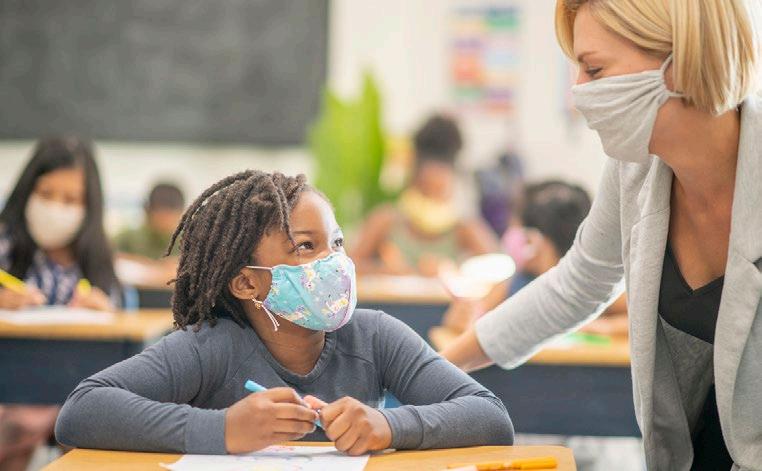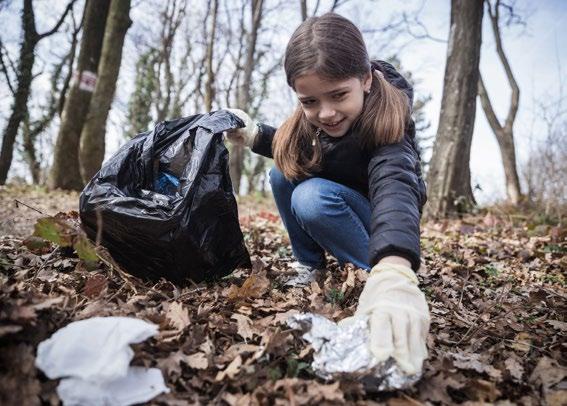
3 minute read
EDUCATION UPDATE
The Value of In-Person Learning
TIM SMITH
Advertisement
RELATIONSHIPS, CHARACTER, AND
Knowledge for Life. This is the mission statement for Sky View, one of our local high schools. These three words — relationships, character, and knowledge — represent the outcomes we want for every student by the time they graduate. We want students to know how to create healthy relationships with their teachers and their peers; to develop strong character and understand the importance of work, commitment, kindness, and honesty; and to have a strong foundation of knowledge as they pursue additional educational opportunities and begin careers. Most schools have similar mission statements that share the same aim to help students become good citizens and contributing members of society.
Over the past year, we have dealt with a pandemic that upended the way we educate students. In March 2020, we moved our entire school system online in a matter of days. For two and a half months, our only contact with students was facilitated through technology. Teachers had to shift from having students in their classrooms to educating them in a virtual environment.
Because of the valiant effort of educators and support staff, combined with the adaptability of students, and the support of parents, learning continued. Although there were many successes with online learning, there were also challenges. Some students disengaged, teachers struggled to connect and provide meaningful learning experiences, and parents sometimes felt frustrated as they tried to motivate their children to do online assignments.
As the school year came to a close, we surveyed parents, students, and staff, conducted focus groups, and met with individuals — all in an effort to listen to parents, students, and employees and learn from this experience. What we heard over and over again was an chief academic officer, Cache County School District appreciation for our efforts, but also a strong desire to return to in-person instruction in the upcoming school year. Most students, teachers, and parents expressed, in one way or another, the value of being in school, learning face-toface.
Over the past several decades, a variety of individuals and groups have called for changes in public education that would move away from traditional methods of educating students, bringing more technology into the process, and allowing students to learn at any time, in any place, and at their own pace. As educators, if there is one thing we have learned from this pandemic, it is the value of an in-person experience where students learn to interact with their peers and with their teachers face-to-face; where they are able to develop relationships and character, and acquire the knowledge they need to be successful.
That doesn’t mean there isn’t a place for online education or that many of the same outcomes can’t be replicated. Our experiences with virtual learning over the past year have resulted in employees and students who are more techsavvy, in the adoption of new learning platforms that can enrich what is taught in a traditional classroom, and in our ability to teach more effectively in a digital environment. While we embrace the benefits and opportunities that online education has afforded us, we don’t believe it is a viable replacement for in-person learning.

There is a purpose in a “public” education. As American author Neil Postman aptly points out, “Public education does not serve a public. It creates a public. And in creating the right kind of public, the schools contribute toward strengthening the … basis of the American Creed.” The connections, growth, and lessons that are taught in our schools cannot be fully communicated in online-only schooling.
Education is about helping us learn to read, write, and do arithmetic. It also includes personal and social development. It’s about gaining the knowledge and the skills needed to better ourselves and the world we live in. As Steven Kagen said, “If we get public education right, everything else will follow. But, if we get it wrong, not much else will matter.”










